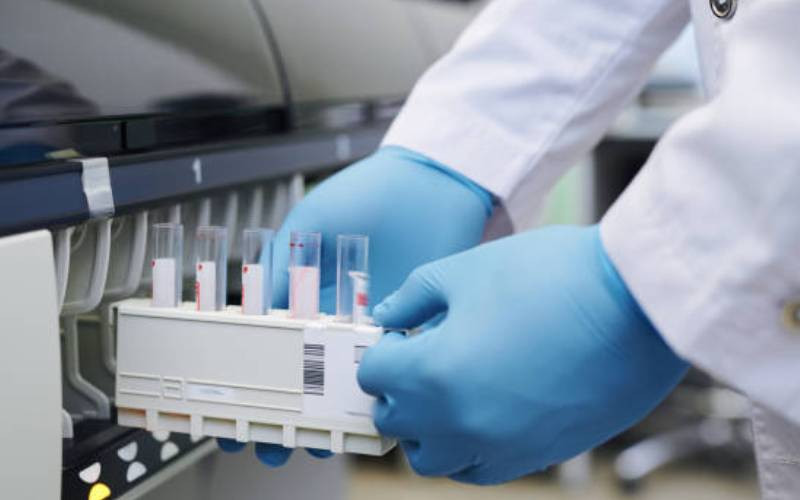Kenyan scientists have identified four markers that can predict the severity and possible death from Covid-19.
These markers can be isolated in blood samples, away from the diagnostic real-time polymerase chain reaction (RT-PCR) test for Covid-19.
According to the study published on November 12, the presence of elevated (leucocytosis) or a drop (lymphopaenia) in white blood cells in Covid-19 patients are among the signs of severe illness.
The study authored by Health Director General Patrick Amoth and virologist Prof Omu Anzala among others listed leucocytosis, lymphopaenia, transaminitis and elevated CRP as the markers.
An elevated CRP, which is a type of protein found in the blood (plasma) known as c-reactive protein, is a sign that one’s arteries are inflamed, which means a higher risk of heart attack according to healthline.com.
Lymphopaenia, on the other hand is a reduction of a type of white blood cells which are responsible for building the immune system.
“Lymphopaenia has been shown to occur frequently in patients with Covid-19 and to predict severe disease,” reads the study titled Epidemiological and Clinical Characteristic of Covid-19 patients in Kenya.
Transaminitis also known as hypertransaminasemia, which is one of the markers, is the existence in excess of a certain type of liver enzymes which end up spilling into the blood stream.
Medical News Today describes this as non-threatening.
“When a person has elevated levels of these liver enzymes, there may be no apparent cause, and levels often return to a normal range without treatment,” it explains. “However, transaminitis can be associated with serious conditions. It is important to explore why levels are high and diagnose any underlying issue.”
The study found elevated alanine (an amino acid that breaks down vitamin B6) and aspartate aminotransferase (an enzyme found in heart, liver and sometimes in kidney) in 48 and 51 per cent of the patients respectively.
The aspartate aminotransferase enzyme is usually low in healthy persons, and increase is a sign the liver has been damaged.
The study notes that elevation in liver enzymes is common and has been reported to range from 16 to 53 per cent by other experts, who also used this marker to predict severe disease and mortality.
“This finding is further strengthened by our study where the presence of elevated aspartate aminotransferase was associated with a hazard ratio of death of 2.5,” the study reads.
A total of 787 patients from six hospitals were examined in the study published by MedRxiv, a medical journal. The study notes that a functional exhaustion of antiviral lymphocytes was also found in the patients who developed severe illness.
The patients were drawn from six hospitals in Nairobi and Mombasa. The findings report that the risk of death increased with age for persons above 60 compared to those below 60.
“Elevated white blood cells count and aspartate aminotransferase were also associated with higher risk of death,” reads the study.
 The Standard Group Plc is a multi-media organization with investments in media platforms spanning newspaper print
operations, television, radio broadcasting, digital and online services. The Standard Group is recognized as a
leading multi-media house in Kenya with a key influence in matters of national and international interest.
The Standard Group Plc is a multi-media organization with investments in media platforms spanning newspaper print
operations, television, radio broadcasting, digital and online services. The Standard Group is recognized as a
leading multi-media house in Kenya with a key influence in matters of national and international interest.











